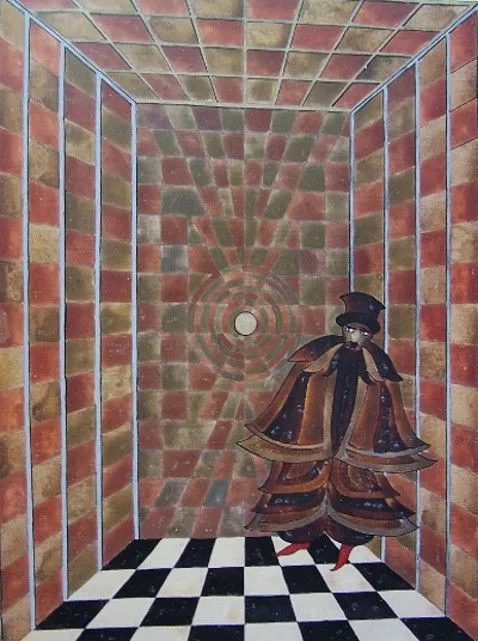Introduction. The Shadow, the antisocial complex

Based on his dreams he coined the term “shadow” which he associated with the antisocial complex hidden in the human unconscious. By observing himself and other subjects, including the members of his family, Jung proposed the existence of “two personalities”. The first he called “Ego-consciousness” (similar to Freud’s “Ego”), and the second he named the “Self”.
Jung felt ‘shadow’ to be an appropriate term for this disowned sub personality for there is inevitably something ‘shady’ about it, hidden away as it is in the dark lumber-room of the Freudian unconscious. Unwanted though it is, it persists as a powerful dynamic that we take with us wherever we go as a dark companion which dogs our steps – just like a shadow in fact. Much of the time we manage to ignore it, but it has an uncomfortable way of reminding us of its presence, particularly in our dreams.
In dreams the shadow tends to appear as a sinister or threatening figure possessing the same sex as the dreamer, and is not infrequently a member of a different nation, color, or race. There is usually something alien or hostile about it, which gives rise to powerful feelings of distrust anger, or fear. This is why Jung felt justified in regarding the shadow as complex – that is to say, a cluster of traits bound together by common affects – which, like all complexes, had an archetypal core, in this instance, the archetype of the Enemy, the Predator, or the Evil Strange Of all archetypes the enemy is one of the most important and, potentially, the most deadly. Its influence becomes apparent during I first year of life. Just as the infant will show delight at being approached by its mother, so it will also show signs of wariness and withdrawal when approached by a stranger. By the second year, this xenophobic propensity has ripened into expressions of full-blown fear and hostility both attachment and xenophobia are evidently the product of innate dispositions because they are apparent in all infants wherever they born and under whatever circumstances they are brought up. Both even apparent in children, who have been blind and deaf from birth, differentiate strangers from familiars by their smell. The biological iiflcance of both patterns of behaviour is apparent from their manifestation by all social species: it is obviously a matter of survival able to distinguish between friend and foe from the earliest possible age.
Shadow. The archetype of enemy
The archetype of the enemy is actualized in the personal psyche as the low complex through growing up in a human social environment. We are two important sources of the complex: (i) cultural and (2) familial repression.
Shadow projection can function, therefore, as a major threat to social and international peace, for it enables us to turn those whom we perceive as enemies into devils or vermin that it is legitimate to hate, k, or exterminate. Unscrupulous leaders can manipulate this mechanism in whole populations. Adolf Hitler, for example, repeatedly described the Jews as Untermenschen (subhumans) and through the skillful use of propaganda was able to induce enough Germans to project shadow on to them as to make the Holocaust possible. The same mechanism is involved in all pogroms, all ‘ethnic cleansing’, and all war
The cultural source includes all that one has been taught politically it out-groups considered to be hostile to one’s in-group (i.e. nation, or band) and theologically about the concept of evil (in our ire, Satan, the Devil, Hell). Inevitably, the shadow comes to possess qualities opposite to those of the persona, the shadow compensating, were, for the superficial pretensions of the persona, the persona ricing the antisocial characteristics of the shadow. The coexistence these two sharply contrasting personalities within the same dual is as apparent in literature as in life: Dorian Gray, the [some, witty, man-about-town, keeps his portrait hidden where no one see it, for it bears all the features of his vicious secret life; Dr. Jekyll and Mr. Hyde are the same man, by turns respectable physician monstrous ogre; the popular TV personality with the compassionate manner and caring smile can be a hysterical termagant with her family.
